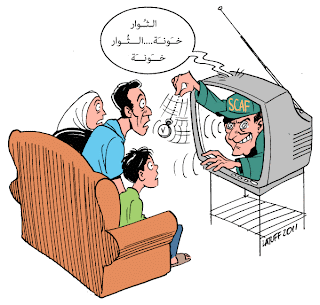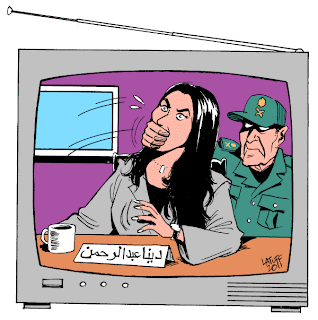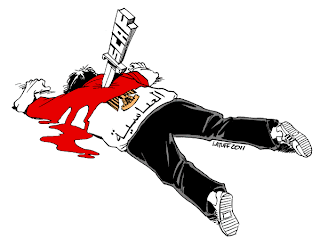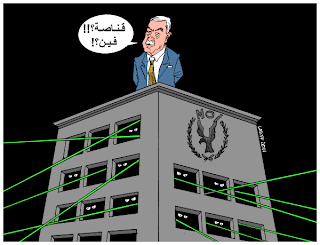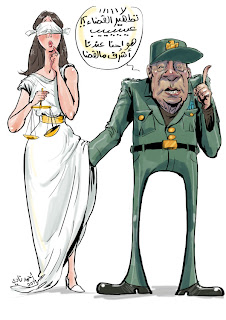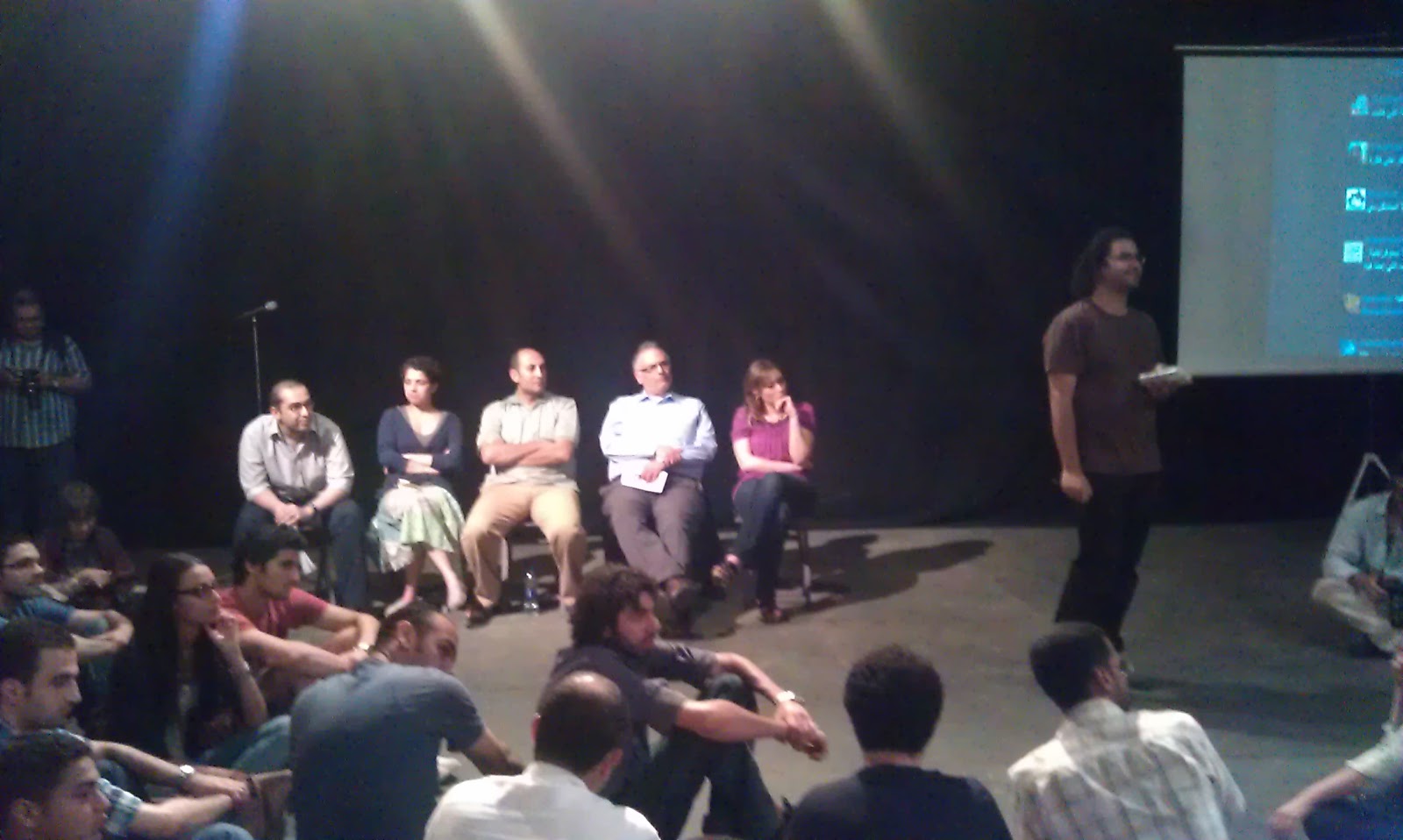Shadows of Democracy and Dissent
Prelude to the Friday of “Unity”
The families of the protesters that had been brutally murdered by the police during the early days of the revolution have been calling for those responsible to be put on trial. The supreme council of the armed forces (SCAF) have been pussyfooting in making that happen, and hence many protesters gathered in solidarity with the families and started a sit-in on July 8. They demanded first and foremost that fair and open trails must be conducted. They had several other demands that would insure that the path to democratic transition is less bumpy, such as stopping subjecting civilians to military trials where justice is handed out summarily with little or no rights for the accused. From more on the rationale of the protesters, check out my earlier post.
 |
| “Islamic, Islamic, not secular or theocratic” the call says. It adds “Time to hear us roar” |
Islamists on the other hand have been gathering forces for what they called “Islamic Identity Friday”. For reasons that remain unclear the Islamists are acting as if they are under serious threat from the liberals and secularist. Many amongst the protesters and several political parties called for calm to focus on the demands that would serve the interests of the revolution and would not exacerbate polarization. But that turned to be a pipe dream.
Betrayal
The Islamist did not honor their agreement and instead came out with demands at odds with those who were sitting-in. They stressed the need for the application of Sharia in their chants. The term itself does not mean much as there are many schools of thought around Sharia and it does not directly mean Saudi or Afghan style system of government and laws. After I had a few chats with some of Islamist, I found that members of the Muslim brotherhood (MB) had a much clearer picture of what the state should like, they seemed to embrace the notions of democracy and pluralism. The Salfis (Wahabis is a more appropriate term) has divergent views and some of them were uncomfortable with the notion that certain basic rights for citizens and protection of minorities must be enshrined in the constitution. Salfis lacked clarity as to what system of government they would espouse.
 |
| Salfi sign “No liberalism, No communism, No Socialism, No Secularism, No pan Arab Nationalism” |
The Islamist generally were engaged in a muscular show of force, there chants attitude and were somewhat disturbing. Some were waving Saudi flags, others were chanting “Behold Obama, the Square is now full of Osamas“. Instead of seeking to dismiss worries about them, they were engaged in confirming the worst fears of liberals and even the majority of Egyptians who do not subscribe to any particular ideology. They wasted a fantastic opportunity to show their countrymen and the rest of the world that they are political force that are worthy of doing business with. The fact that they reneged on a promise and presented a narrative that would alienate most Egyptians, specially those who took part in the revolution, is bound to hurt them on the long term.
It was quite a peculiar scene to see that while the protesters who were at the sit-in were reeling against SCAF, the Islamists made a point of showering the head of SCAF, Tantawi, with praise in their chant. One has to wonder when he sees Saudi flag waving, Bin Laden sympathizers, expressing there deep loyalty to SCAF. Either something is very wrong with SCAF, the Islamists, or probably both.
Whilst all of this was happening in Tahrir, Egypt’s spy chief Murad Muwafi was meeting US vice president Hillary Clinton. Speculations were rife amongst protesters that the old Islamic boogeyman card was being played. It is either a SCAF autocracy or a fanatical terrorist harboring theocracy that comes to power and eliminates any hopes of a democracy.
 |
| SCAF riling up Islamists against protesters (by Ahmed Nady) |
On the upside
Despite everything, there was an upside to all of this. I consider it very reassuring that both the Islamists and sit-in protesters managed not to be at each others throats for the duration of the day. The degree or restraint and self-control on both sides was impressive. Many of the Islamist seemed eager to listen, engage in dialog and to try to appreciate other opinions as well as articulating theirs. Despite very differing world views, dialog was possible. A society that had no public space or means of self-expression is going to take a while to overcome decades of fear and mistrust between its fragmented elements and establish some form of cohesion.
 |
| The cause of justice for the martyred has not been served by all of this . (By Mostafa Gamal) |
Ill will and garbage
The Islamist left the square, leaving behind tonnes of trash and ill will. Many of the revolutionaries felt violated. I met quite a few who were in tears. Some told me “we did not fight and watch our friends die so that fanatics would come and deny us our freedom”. Many were also deeply offended by what they saw the Islamists making themselves self appointed spokespersons for their religion. The chant “where is the media, Islam is here!” was specially offending to many who have view of Islam and values that strongly diverged with those of the Islamists. The Islamists literally hijacked several of the secular stages for their purposes. They prevented Sufis from entering the square and called them infidels.
After they left there was a some rejoicing and singing and everybody in the square was chanting for civil and non theocratic state. However, we were breathing a heavy and depressing air. The magic of the early days of the revolution where we showed a great deal of tolerances and genuine love for each other seems to be fading away.


